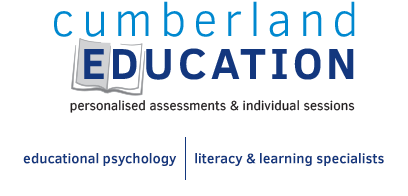At Cumberland Education, we understand that every individual has unique learning, behavioural, and social-emotional needs. If concerns arise about a client’s learning progress, behaviour, or social development, we may recommend an assessment with our Psychologist, Nicole Martin.
Specifically we can assess for:
- Specific Learning Disorders such as Dyslexia, Dysgraphia, or Dyscalculia
- Neurodivergence, such as:
- Attentions Deficit Hyperactivity Disorder (ADHD)
- Autism Spectrum Disorder (ASD)
Our approach is highly individualized—assessment tools are selected based on the client’s specific needs and desired outcomes.
If you have concerns about your child’s learning, behaviour, or development, contact us today to discuss how we can support them.
Frequently Asked Questions
Do I need a Cognitive/Leaning Assessment?
Results of these assessments:
- Provide information about a student’s intellectual potential, strengths and weaknesses in learning and oral language, as well as their current level of achievement in literacy and numeracy.
- Help form a diagnosis of a Specific Learning Disorder such as Dyslexia, Dysgraphia and Dyscalculia.
- Determine if the student is working at their potential in literacy and numeracy.
- Evaluate whether the student meets the criteria for Gifted and Talented, ‘Twice Exceptional’ etc.
Our preferred form of assessment is the Woodcock Johnson IV:
- Tests of Cognitive Abilities
- Tests of Achievement
- Tests of Oral Language
However, we are able to also conduct Cognitive and Achievement tests such as:
- Wechsler tests - WISC V and WIAT IV
The amount of testing we recommend is driven by your needs. For example, a diagnostic assessment may take 6 – 8 hours, whereas a literacy assessment, to get started in Specialised Lessons, may only take an hour.
We also take time to read through all your previous assessment reports, to ensure we conduct the most appropriate assessment and don’t over assess the student.
Do I need a Neurodiversity Screening Assessment?
Results of this assessment provide information about a student’s:
- Behaviours such as hyperactivity, inattention, social communication, self-regulation, anxiety
- Sensory processing
- Sleep
We use a variety of standardized questionnaires and structured interviews.
When the results are taken to your paediatrician, it will help form a diagnosis of ADHD and/or Autism Spectrum Disorder.
When and where are assessments conducted?
Assessments are usually conducted during the week in school hours, both during school terms and school holidays.
Assessments are currently conducted online. Please call us to discuss if you have any concerns about online assessments.
How much do assessments cost?
We pride ourselves on our affordable and competitive prices. All assessments are designed on the individual needs of the client. Assessments can range from approximately 1-8 hours.
All assessments come with written reports and verbal feedback as part of this cost.
Please call us to discuss appointment times and price.
